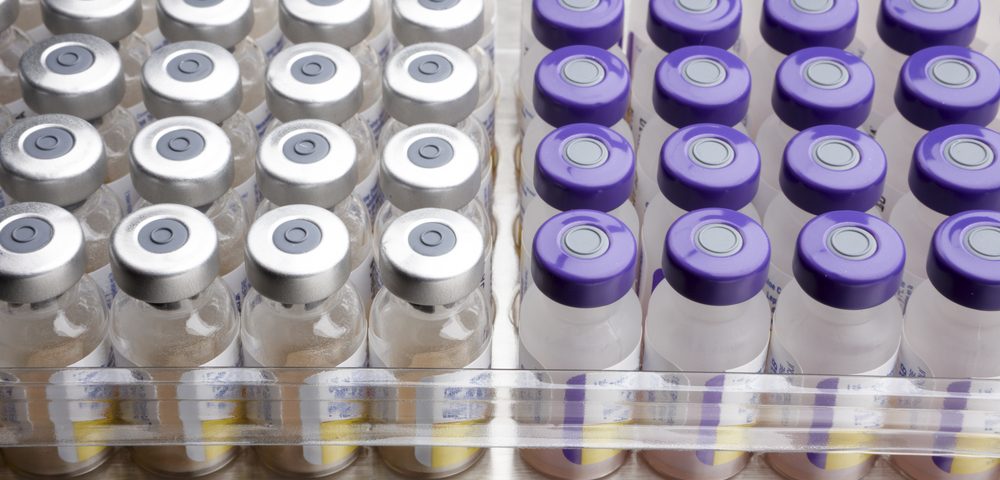Panacea Pharmaceuticals has completed patient enrollment in a Phase 1 clinical trial testing its PAN-301-1 vaccine as a treatment for prostate cancer that has failed to respond to other therapies.
The multi-center trial (NCT03120832) is looking at the vaccine’s ability to provoke an immune response in prostate cancer patients who experienced a rise in their PSA levels after surgery or radiation therapy. PSA is a protein that doctors use as the main biomarker of prostate cancer.
Panacea is conducting the trial, which began enrolling participants in January 2017, at four U.S. sites.
PAN-301-1 targets human aspartyl (asparaginyl) β-hydroxylase, or HAAH, an enzyme usually not found in healthy cells, but present in more than 20 types of cancer.
During fetal development, HAAH participates in cells’ growth, movement, and interaction. But at birth, the body no longer produces it. In cancer cells, it is generally associated with a worse patient outlook.
PAN-301-1 contains hundreds of copies of an HAAH fragment to generate an immune response against the enzyme. Panacea designed it to overcome the immune system’s ability to avoid attacking the body’s own proteins.
The company has administered more than 90 doses to 12 patients. Each patient is receiving a minimum of three doses of PAN-301-1, using a fixed dose escalation protocol, every 21 days. The vaccine is administered under the skin, using the 3M Drug Delivery Systems’ hollow microstructured transdermal system. The system’s convenient, quick and painless delivery makes it easy for patients to use and to stick with the treatment, the company said.
Early findings indicate that all doses of PAN-301-1 are safe. So far there have been no drug-related adverse events or dose-limiting toxicities, researchers said.
In addition, the scientists observed dose-dependent immune responses against HAAH, as measured by antibody levels and immune T-cell and B-cell responses. Importantly, most patients treated beyond three months achieved a reduction in their PSA doubling rate, a measure of disease progression.
“The Phase 1 study results reinforce our belief that we have created a safe and promising new therapeutic cancer vaccine candidate targeting a specific cancer-relevant marker and overcoming self-tolerance, yet avoiding the serious side effects associated with many other immunotherapeutic cancer drugs,” Hossein A. Ghanbari, the president and CEO of Panacea Pharmaceuticals, said in a press release. Self-tolerance is the immune system’s ability to recognize self-produced antigens as no threat while mounting a response to foreign substances.
Panacea expects to present detailed data on the trial at a medical conference this year, Ghanbari said. The company anticipates that the trial will be wrapped up in the first half of 2018.
“Based on these results, we are in the planning stages of Phase 2 clinical studies to be initiated in the second half of 2018,” said Steven A. Fuller, Panacea’s chief operating officer.

